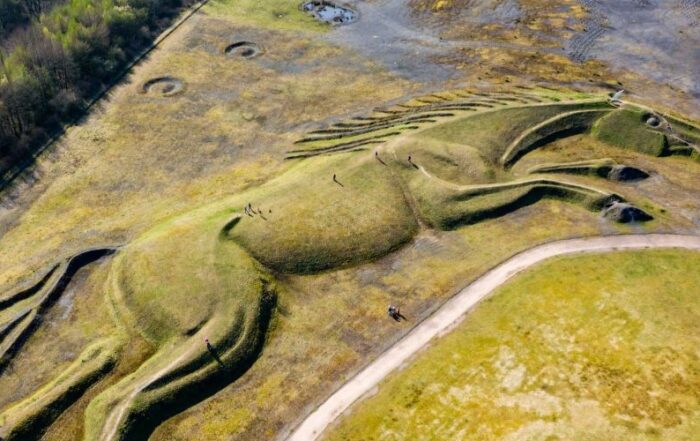Extending your global reach to alternative international funders
Researchers based in Europe seeking funding for research projects will be aware of certain high profile funders within and outside their own country. However, fierce competition for grants and the complex and bureaucratic experience associated with applying to many funding streams can act as a deterrent.
The good news is that there is a wealth of alternative sources of international funding, often based outside Europe, which can be easier and more straightforward to access and apply to.
This paper considers the challenges that research managers face and explores ways of identifying and maximising alternative sources of international funding and support.
The funding challenge
Beyond domestic funding, the European Commission is likely the best known and most widely publicised funder. The Commission offers a range of initiatives, including its flagship research and innovation framework programmes (Horizon Europe (FP9) released its first calls in 2021). While this prominent funding source undoubtedly plays a vitally important role in supporting research and researchers, it is also true that applying for EU funding continues to present challenges and difficulties.
Fierce competition for funds, low success rates (just 13% of European Research Council applications are approved), and the complex and bureaucratic experience associated with applying for funding from the Commission all act as barriers to participation. The good news for researchers is that there are a great many alternative sources of international funding.
These types of support are often more straightforward to access and apply to, while still supporting the internationalisation of research and researchers – helping to enhance their reputations and that of their institution. Of course, much depends on the area or discipline a researcher is working in and the type and amount of funding sought. However, organisations such as the Open Society Foundations, AXA Research Fund, Japan Society for the Promotion of Science (JSPS) and the Andrew W Mellon Foundation – to name but a few – offer a wide variety of funding schemes aimed at individuals and institutions anywhere in the world, and cover all key disciplines such as the arts and humanities, sciences and health.
Importantly for researchers who do not have the expertise or time to go through lengthy and complex submission and post- award processes, these schemes have much simpler application and monitoring procedures. The activities these funders support are also many and varied, ranging from fellowships, exchange visits and collaborative working to scholarships, grants and prizes. For example, in the area of collaborative working, the JSPS runs a number of schemes such as its Fellowship programmes for both international and domestic researchers to carry out research activities overseas.
Fellowship programmes for both international and domestic researchers to carry out research activities overseas. In addition, reaching out to the international research community to address complex issues of local and global concern are reflected in the range of programmes funded around the world by the Open Society Foundations.
Other activities such as engagement with partners, disseminating research and receiving recognition through prizes and awards are a key part of most researchers’ working lives nowadays, regardless of what field or discipline they are working in. Other activities such as engagement with partners, disseminating research and receiving recognition through prizes and awards are a key part of most researchers’ working lives nowadays, regardless of what field or discipline they are working in.
International funders can often be a good source of funding for virtually all of these activities and disciplines, including very niche areas of research and smaller-scale projects. Some of these funders, examples of which are provided later in this paper, are obscure, which means that there will be less competition for funds as fewer researchers will know that they exist!
Engagement with others
Collaborative working often necessitates exchange visits and, as travelling or relocating to another country can be very costly, researchers almost invariably require financial assistance with this. A wide variety of schemes that fund exchange visits are available, ranging from those established by agreements between two individual countries, for example, the Dumont d’Urville New Zealand–France Science and Technology Support Programme, to those which are continent-wide or intercontinental, such as the Worldwide Universities Network Research Mobility Programme.
JSPS has already been highlighted as a source for collaborative working and, notably, also funds in the areas of the social sciences and humanities. For those struggling to secure funding within these disciplines, these international funders are a valuable alternative to better-known streams.
Depending on the area they are working in, researchers also have the option of availing themselves of any schemes offered by the relevant European society or association for that area. If, for instance, you are a researcher looking to widen your experience and work with internationally recognised experts, then the European Research Consortium for Informatics and Mathematics’ (ERCIM) Alain Bensoussan Fellowship Programme will be a possibility for you.
It is worth mentioning that researchers seeking to do collaborative workor visit another institution can find alternatives to the European Cooperation in Science and Technology (COST) programme. Online networking sites similar to LinkedIn but designed specifically for researchers exist and can be useful sources of information. Several of them are free to sign up to – including ResearchGate
(www.researchgate.net) – and are dedicated to helping researchers from academic institutions and research centres make contact and find collaborators across the world.
Engagement with others can also involve public engagement activities whereby researchers give lectures, or organize or appear at public events, meetings and festivals in order to share and bring their work to a much wider audience. Again, this type of activity is supported by a number of international funders. For example, an American Association for the Advancement of Science (AAAS) focus area includes public engagement, which supports researchers through workshops, toolkits and targeted funding opportunities.
The John Templeton Foundation’s Science and the Big Questions Public Engagement Grants support innovative programmes that advance the Foundation’s mission beyond the academy by helping people worldwide engage with scientific research and explore the ‘Big Questions’, inspiring reflection on their deeper significance.
Researcher recognition
Competitions and prizes can be good opportunities for researchers to raise their profile, gain recognition for their work and, perhaps, have it published in a monograph or journal. Prizes, of course, range from well-known large international prizes to more obscure smaller ones.
However, having any prize on their CV is normally a feather in the cap of a researcher and can be used to highlight their expertise and credibility to funders. Maximising your chances of winning them is where smaller prizes can come into their own. Thus, for example, instead of trying to compete for the EU Prize for Cultural Heritage, a major award which may be beyond the reach of many researchers, they could instead enter for alternative but similar and, perhaps, lesser-known awards such as the International Institute for Conservation of Historic and Artistic Works’ Keck Award or the BBVA’s Foundation Frontiers of Knowledge Awards.
The majority of prizes and awards are open to researchers of all genders, but some awards exist to specifically recognise the contribution of women researchers. The EU Prize for Women Innovators, for example, recognises women who have benefited from EU funding related to research and innovation and have combined their scientific excellence with an aptitude for business to start up innovative enterprises and bring solutions to the market. In the realm of science, the prestigious L’Oréal-UNESCO For Women in Science Awards have, since 1998, recognised more than 100 women from 30 countries. Again, these are major international prizes but there are many other smaller prizes in particular fields that are only available to women – for example, the Ruth I Michler Memorial Prize awarded by the Association for Women in Mathematics.
Inequality based on gender is an issue of global concern and infiltrates numerous aspects of daily life such as work and education. Gender issues also impact on women’s success in comparison to men with regards to making grant applications and being successful – a problem recognised by the Commission and other funders. Projects such as Genovate (funded through Horizon 2020) and the initiative ‘Women TechEU’ (funded under the European Innovation Ecosystems work programme of Horizon Europe) highlight the Commission’s commitment to ‘Achieving a Union of Equality’. Alternative international funders such as the Arcus Foundation and Feminist Review Trust play their part too by enabling researchers to engage with the promotion of gender equality and diversity.
Naturally, there is no guarantee of success in any prize competition but researchers can certainly increase their chances by making themselves aware of the variety of prizes and awards being offered by global institutions or organisations working in their field of research, rather than sticking to the usual ports of call and grant funding opportunities per se.
Disseminating research
Disseminating research and networking are important activities for researchers. Conferences, seminars and similar events provide ideal opportunities for them to combine both. The location of a conference is obviously key to how much it would cost a researcher to attend and how much financial assistance they might therefore need. If it is on their doorstep then they may need no help at all but the option of travelling abroad should be open, especially to those researchers who wish to reach a specific audience. To stand the best chance of obtaining funding to attend a conference, researchers are usually expected to have had a paper accepted for presentation. If this has happened, then there are two possible routes to obtaining support.
First, it may well be that the conference itself has been given resources to fund speakers to attend. For example, the Wenner-Gren Foundation, through its Conference and Workshop Grants, provides funding to conferences to be used towards expenses for international scholars who are making presentations and would not otherwise be able to attend.
Second, subject organisations at national and international level, such as societies and associations, often have pots of money available to help scholars in their field attend conferences, be they their own or others’ events.
Typical of these schemes are the European Society of International Law Travel Grants, the International Studies Association Travel Grants and the European Association for American Studies Conference Travel Grants.
Research is also disseminated through publication and, as with conference attendance, foundations and societies are often good sources of funding for this as well. One such example is the Terra Foundation for American Art International Publication Grant, which supports the publication of book- length scholarly manuscripts on the history of American art.
International sources of funding are available for all the typical subject areas such as arts and humanities, sciences and medicine. Within these areas, however, it is important to note the sheer diversity of subjects for which funding can be obtained. There are funders out there that provide funding for the most specific or esoteric of subjects. For example, if you are a researcher studying the psychology of violence then the Harry Frank Guggenheim Foundation is there to support your funding needs. Or, perhaps you are a researcher interested in Islamic art and history/archaeology. In that case the Barakat Trust can be applied to. What if you need support to carry out research into the history of timekeeping? The Antiquarian Horological Society may well provide a solution to your problems.
The Society for Psychical Research supports general psychical research and research into survival after the death of the body, which remains a controversial subject that struggles to access funding. Complementary to Horizon Europe’s Global Challenges and European Industrial Competiveness pillar (combination of Horizon 2020’s Societal Challenges and Industrial Leadership pillars), the Brocher Foundation looks at ‘issues at the heart of personal and societal challenges’ and seeks to encourage multidisciplinary and intercultural research on the legal, social and ethical issues related to medical progress.
However ‘niche’ a researcher’s subject might be, the message here is that there is a good chance that there is a funder out there that covers it. There is no doubt that when it comes to securing funding, knowledge of all the options available to researchers and research organisations offers a significant advantage. It is important, therefore, that researchers based in Europe – and worldwide – are aware that there is a whole funding world beyond the continent that is worth exploring.
Fortunately, tools such as Idox’s ResearchConnect service are available to help search for and identify a wide array of suitable funding opportunities, thus saving time and effort (and possibly frustration!) and allowing researchers to concentrate on what really matters to them – planning and progressing their research.



